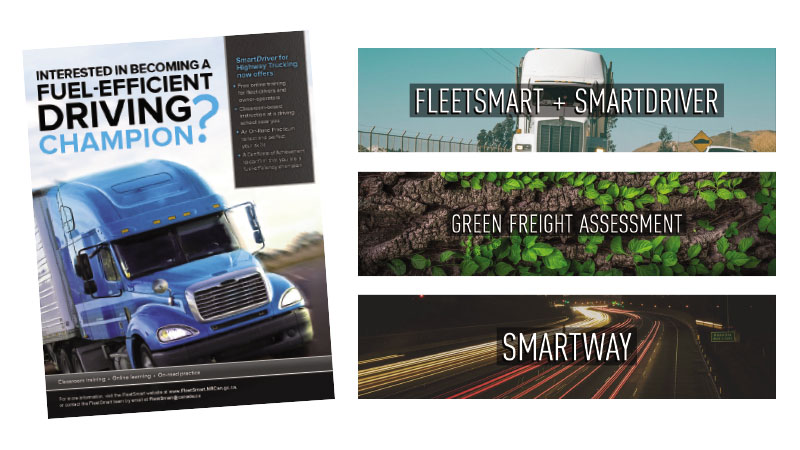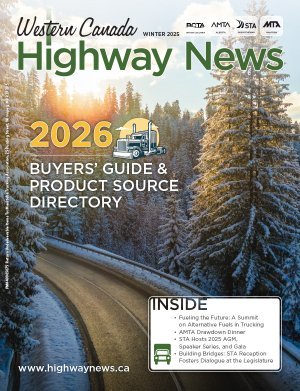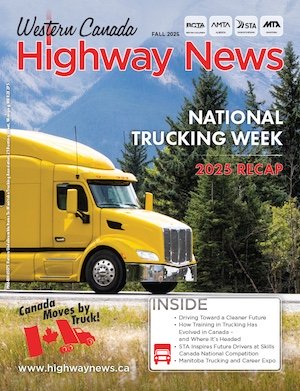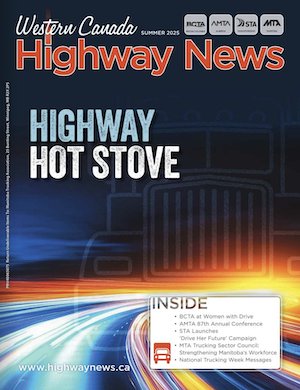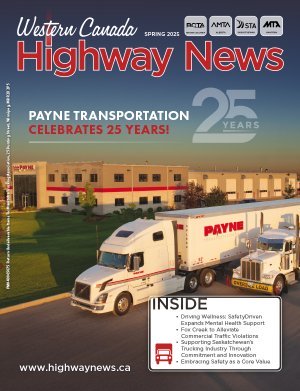The Saskatchewan Trucking Association would like to announce our partnership with Natural Resources Canada. During this partnership, the STA will be offering training and programming; including Smart Driver for Highway Trucking, the Green Freight Assessment Program, and SmartWay Canada.
SmartWay makes your business more competitive. In the transportation sector, environmental performance is becoming more important as a business metric. To be competitive, your business must have a firm commitment to cut harmful emissions, no matter how you move your goods.
The SmartWay Transport Partnership is a free and voluntary program that helps businesses move goods efficiently while keeping fuel costs and environmental impact at a minimum. SmartWay encourages best practices in freight supply chains. It helps carriers and shippers benchmark their operations, track fuel consumption and improve their overall performance.
More than 3,600 North American companies have signed on to the partnership, which was launched by the United States Environmental Protection Agency (EPA). SmartWay has been run in Canada by Natural Resources Canada (NRCan) since 2012. SmartWay in Canada also works with NRCan’s FleetSmart initiative to help carriers save fuel.
FleetSmart helps commercial and institutional vehicle fleets lower their fuel consumption and improve their environmental performance. FleetSmart is designed for professional drivers, owner-operators, driving instructors and fleet managers. They learn how energy-efficient vehicles, driving habits and business practices can cut their operating costs, reduce vehicle emissions and improve productivity. SmartDriver is web-based training for FleetSmart.
In Canada, transportation contributes nearly one quarter of total greenhouse gas (GHG) emissions. Heavy-duty vehicles account for a significant amount of these transportation-related GHG emissions. Demand for freight is highly correlated with economic growth and continues to grow due to increasingly globalized supply chains, ‘just-in-time’ delivery and the exportation of natural resources. While current and proposed heavy-duty vehicle (HDV) GHG emission regulations aim to reduce emissions from this sector, these regulations apply only to new vehicles and engines and not the current fleet of in-use vehicles, many of which will remain in use for numerous years with an average service life of more than 15 years. Furthermore, the emission regulations only affect vehicle technologies and do not influence operational practices within the freight supply chain.
It is recognized that there is significant emission reductions potential from improving freight efficiency and Canada is identifying pathways for reducing emissions while ensuring competitiveness of the sector. A key part of these reductions will be obtained from HDV fleets implementing energy efficient operational practices, adopting newer technologies and purchasing alternatively fueled vehicles. However, barriers persist to the wide-spread integration of energy-efficient measures in Canada’s HDV fleets, in part due to a lack of awareness of measures well-suited for Canadian companies.
To complement the Government of Canada’s heavy-duty vehicle greenhouse gas (GHG) emission regulations, Natural Resources Canada (NRCan) launched the Green Freight Assessment Program (GFAP) in April of 2018. Through this new program, along with previously established programs like SmartWay and FleetSmart, NRCan continues to promote freight efficiency within Canada’s on-road heavy duty industry.
The intent of this email is to inform you that we are now launching a new phase of the GFAP program. This phase will provide an opportunity for participants to receive financial support for the implementation of fuel reduction and fuel switching technologies and practices that were recommended through a third-party freight assessment.
For this initiative, NRCan will provide up to 50% of the funding towards fuel reducing technologies and/or up to 50% of the incremental value of a vehicle that utilizes lower carbon fuels. Participating companies will be responsible for contributing the remaining 50% which can include cash contributions, in-kind contributions (e.g. installation, training, etc.) or contributions from other levels of government.
To be eligible for NRCan funding in this round, costs must be incurred prior to March 31st, 2019.
Please confirm your interest by Friday, February 1st and we will promptly send you an application package. In your response, please provide an estimate for the amount of funding that you will request.
Verification of your 3rd party assessment, which must have been completed after January 1st, 2018, will be required as part of your application process.


 1-866-985-9791
1-866-985-9791